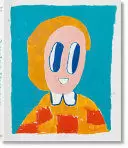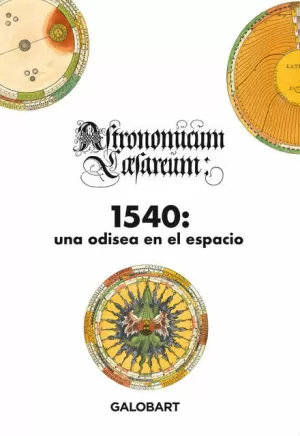
- Editorial:
- TASCHEN
- Año de edición:
- 2022
- Materia
- Libros de regalo ediciones especiales
- ISBN:
- 978-3-8365-8933-8
- Páginas:
- 428
ANDRÉ BUTZER
ANDRÉ BUTZER / HANS WERNER HOLZWARTH
u003cpu003eFamous First Edition: First printing of 4,000 numbered copiesu003c/pu003eu003cpu003eFusing European expressionism with American popular culture, André Butzer started painting his way through the artistic and political extremes of the 20th century. With wide-ranging influences including the likes of Friedrich Hölderlin, Edvard Munch, Walt Disney, and Henry Ford, he developed a fictitious universe centered around the space colony NASAHEIM. There dwells the Peace-Siemens, a friendly head-shape that combines utopian ideas with the economical thinking of budding mass-consumerism, while a figure like the Wanderer offers romantic projections, or the Shame-Human reflections of the political past. This universe lends thematic depth to the canvases, with the characters acting as protagonists of paint, surrounding the N-House, home of all colors, in the style the artist has termed "Science-Fiction Expressionism."u003c/pu003eu003cpu003eSome years into the new millennium, the colors took on a life of their own and grew into abstract paintings of lines freewheeling across the canvas. Moving closer to the limits of painting, from 2010 on Butzer explored the fundamental dimensions and potentialities of painterly expression in the seemingly black surfaces of his N-Paintings. At this point, Butzer relocated to California in 2018, painting outdoors year-round. The resulting works brim with colorful freshness, an extended family of lines and figurations with new attitudes refined by their experiences at the far edge of abstraction.u003c/pu003eu003cpu003eThis is the first book to span the full range of Butzer's oeuvre from 1999 to 2021, the works' progression gaining an almost musical drive of development, return, and new beginnings. The plates are interspersed with contemporary quotes from the artist that illuminate his idiosyncratic stance as a background to the work, as well as photos from his archives. The introductory essay, written by Hans Werner Holzwarth, investigates the different work phases, and places the artist's ideas in a wider discourse of abstraction and figuration after the end of either genre. And, most importantly, the book's pristine, huge-format illustrations fully evidence the finesse as a colorist that place this artist among the internationally most recognized painters of his generation.u003c/pu003e







